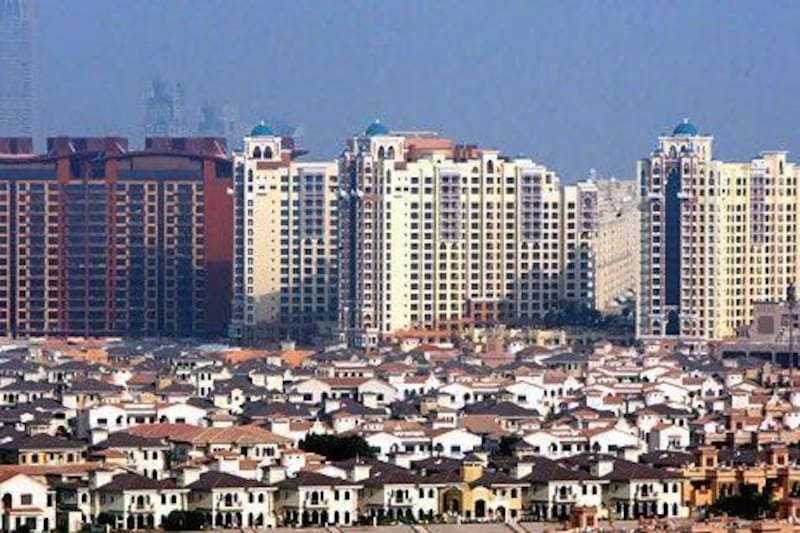The Government's move yesterday to extend visas for homebuyers is expected to provide a much-needed spark to the struggling property market.
The unavailability of long-term visas has been one of the key issues restricting home sales, property executives say. Under the new law property buyers will be able to obtain a visa for three years instead of the current six months.
"This is welcome news," said Richard Paul, an associate director of Cluttons, a global property company. "It's been something we've been waiting for ever since they reverted it to six months."
Video: Will new rules help?
Kevin Brass discusses how the new visa rules could help the UAE property sector
Under current federal law foreign owners of property worth more than Dh1 million (US$272,253) are able to apply for a six-month visa, which has to be renewed every six months for Dh2,000.
Residency visas were a controversial issue in Dubai during the boom years, when several developers said they would provide visas to homebuyers. In 2009 the law was changed, restricting visa validity to six months.
"This was another thing that made buyers insecure," said Tomas Ghassemi, the managing director of The Property Store.
No details on the costs or restrictions on the new visas were available as The National went to press.
"As long as there are no conditions and as long as the fees are reasonable it will be fantastic for the market," Mr Ghassemi said.
Dubai property values have fallen by more than half in some places since the peak in 2008 as the flow of international buyers dwindled. Analysts expect prices in many neighbourhoods to decrease another 10 to 20 per cent in the next year.
The new visa law is "positive news", said Jesse Downs, the director at Jones Lang LaSalle's UAE office. "But there are still severe hurdles to overcome before the market enters recovery."
Another 20,000 homes are expected to be built in Dubai in the next year, according to Jones Lang LaSalle data. In Abu Dhabi 16,000 homes are under construction.
Although sales are picking up, property experts say it could take another two years to use up the stock of available homes.
"Theoretically [the visa] will unlock second-home demand, but it is our opinion that it will not be sufficient to absorb the supply overhang," Ms Downs said. "This will just be a step in restoring confidence in the market."
Comment: How new changes could see an army of ex-pat grannies boost the economy
No time to be shy and retiring about older generation
How grandparents could hold the key to Dubai's property market flourishing again.
[ Read more ]
[ More business ]
The number of sales in Dubai has steadily increased in the first half of this year compared with last year, property agents say.
But many of the sales have been the result of people moving up in the market to take advantage of lower prices, not of international buyers.
"We need something to stimulate the property market," said Mario Volpi, the sales director for PowerHouse Properties. "With prices coming down people are starting to come back."
This year Qatar moved to grant residency visas to property buyers, adding a new twist to the regional competition for second-home buyers.
"Qatar's move to liberalise its visa regulations could exert further pressure for similar changes within the UAE," Jones Lang LaSalle noted in a report released in April, adding a residency visa extension in the UAE would "represent a major boost for the Dubai residential market".
The new law is unlikely to have an immediate impact, property executives say. The summer season is traditionally the slowest time of the year for sales.
But it should help position the market in the autumn.






